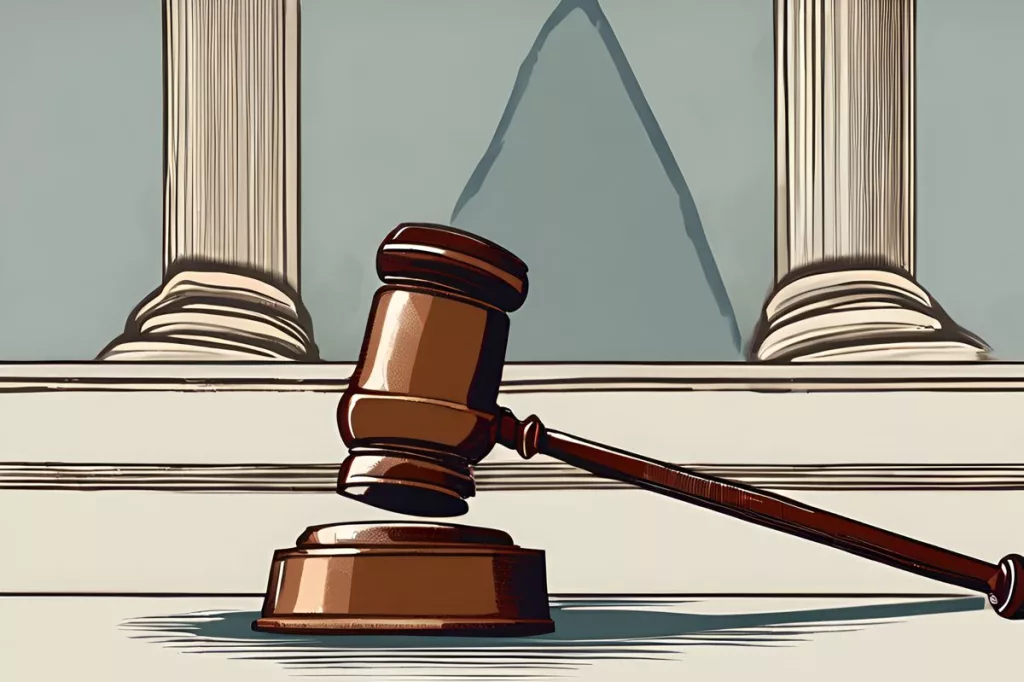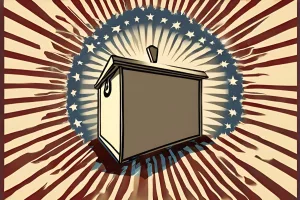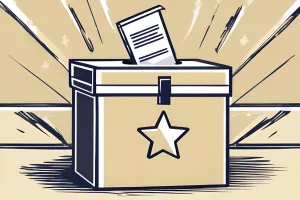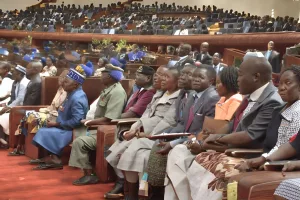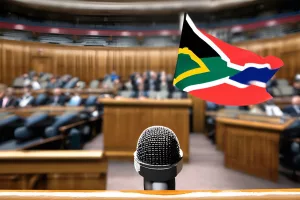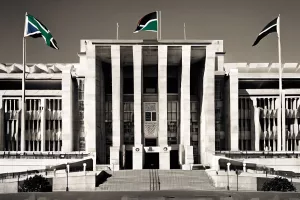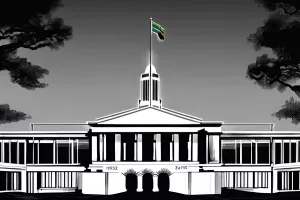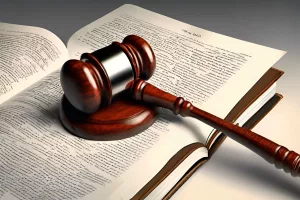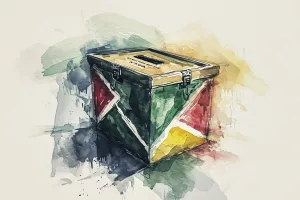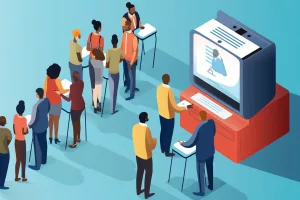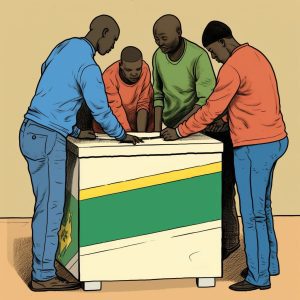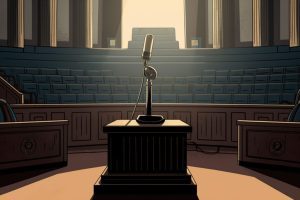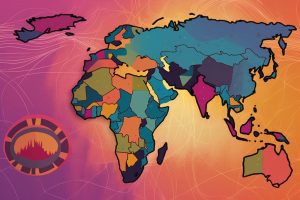In a historic decision, Judges John Hlophe and Nkola Motata were dismissed from their judicial roles in South Africa due to gross misconduct. The decision was made by the National Assembly following the Judicial Service Commission’s findings. The dismissal showcases South Africa’s commitment to upholding justice and highlights the accountability mechanisms within the country’s judiciary. The process leading to the decision was lengthy and involved various bodies, demonstrating the regulation and rule of law in the country.
South Africa’s Parliament has confirmed the General National and Provincial Election date for May 29th, 2024, complying with the legal clause of section 49(2) of the Constitution. The announcement followed the President’s consultation with the Independent Electoral Commission and Premiers of all nine provinces, and the Presiding Officers urged eligible voters to exercise their democratic privilege and adhere to the Electoral Code of Conduct. With the impending elections marking the 30th anniversary of South African democracy, the nation stands united in dedication to a dynamic and resilient democracy.
South Africa’s seventh national elections are set to take place on May 29th, 2024, marking a significant moment in the country’s democratic journey. President Cyril Ramaphosa made the announcement following constitutional protocols and declared the day a public holiday. He called for full citizen participation, emphasizing the importance of exercising the right to vote in determining the country’s future. The upcoming elections are predicted to be a heated political contest, with the ruling ANC projected to lose its majority.
On February 21, 2024, Cape Town City Hall hosted a momentous event, the annual Budget Speech presented by the Minister of Finance. The speech outlined the fiscal policy and financial priorities for the following fiscal year and was attended by members of the National Assembly and open to media and the public. The event highlighted the accountability and transparency of a functioning democracy, with media representatives capturing the proceedings and the public actively participating in the democratic process. It was a demonstration of democracy in action and showcased the mutual relationship between the government and its citizens.
The Western Cape High Court upheld the temporary suspension of six Economic Freedom Fighters (EFF) parliamentarians who refused to comply with the Speaker’s directive to vacate the chamber during the 2023 State of the Nation Address. The court described EFF’s application as an “abuse of process” and imposed punitive costs on the party. Upholding respect for institutional processes and the parliamentary authority to manage its proceedings is essential for promoting democracy and institutional respect.
The 2024 State of the Nation Address (SONA) in South Africa marks thirty years of democratic Parliament and is a moment of reflection and change as the country gets ready to usher in a new cohort of Parliament members. The event will follow the full ceremonial format observed in previous years and signifies the country’s transformation from systemic racism to a democratic republic. The SONA will promote the local economy, acknowledge dignitaries and facilitate the media, and appreciate the essential role played by informal traders. The nation is urged to participate actively by tuning into the live broadcast.
The Vibrancy of South African Parliament: A Week of Governance, Contemplation, and Exchange
The State of the Nation Address is a significant event for South Africa, and the Parliament is buzzing with activity as it prepares for it. Here, the President presents an overview of the country’s current state and the government’s plan of action. The event takes place in Cape Town City Hall, where the legislative, executive, and judicial powers gather under one roof. Leading the arrangements are the Parliament’s Presiding Officers, and in the runup to the SONA, various committees are holding crucial meetings to discuss progress and future plans on a range of topics, reflecting the heartbeat of South Africa’s democracy.
Reflections on the South Africa Legislative Sector International Oversight Summit: Assessing Progress and Future Hurdles
Deputy President Mashatile spoke at the South Africa Legislative Sector International Oversight Summit, praising the country’s progress in democracy and legislative accomplishments like the Electricity Regulation Amendment Bill and the Domestic Violence Act. He emphasized the importance of accountability, integrity, ethics, and transparency for the legislative sector’s role in improving the lives of South Africans. Mashatile also highlighted the upcoming National General Elections and the government’s commitment to progress and reform.
The High Court in South Africa rejected the Economic Freedom Fighters’ (EFF) request to put disciplinary measures against six of their members on hold, affirming the importance of decorum and the rule of law in parliamentary procedures. The court’s decision highlights the significance of maintaining order in political institutions and the consequences of disregarding parliamentary regulations and customs. The verdict also serves as a testament to the sturdiness of the country’s judicial system and its dedication to upholding democratic principles.
South Africa has taken a bold legal move against Israel for alleged war crimes, exhibiting its unwavering dedication to justice and democracy. This audacious undertaking mirrors Nelson Mandela’s principles and stands as a testament to the nation’s resilience and unwavering commitment to justice. South Africa’s case was both compelling and emotional, spotlighting the harsh reality of Gaza, where indiscriminate violence has led to the loss of thousands of civilian lives. Despite potential diplomatic repercussions, South Africa’s legacy of resisting oppression, giving voice to the voiceless, and upholding justice persists.
South Africa is gearing up for its 2024 General Elections, with the Independent Electoral Commission (IEC) working tirelessly to ensure fair and transparent elections. Meanwhile, worldwide electoral perspectives show the importance of financial transparency and democratic ideals, with Cyprus’s compulsory voting system and proportional representation and the EU’s adherence to common standards for free and fair elections. The IEC’s role extends beyond logistical operations, as it serves as a guardian of hope for South Africa’s progress and inclusivity, resonating with the universal pursuit of representative governance.
South Africa’s 2024 National and Provincial Elections saw over 2.9 million voters participate in the registration process, with 2.7 million physically attending voting stations and almost 200,000 using the online portal. The Voter Management Device (VMD) facilitated over 800,000 live transactions and captured 1.8 million transactions for later processing. The highest number of registration transactions were recorded in Gauteng, KwaZuluNatal, and the Eastern Cape, with females slightly outnumbering males at 52.52%. The online registration portal recorded almost 200,000 transactions during the Registration Weekend. The Electoral Commission’s dedication to fostering voter participation extends beyond the registration process and reflects its commitment to ensuring everyone, regardless of their circumstances, has the opportunity to register.
Refining South Africa’s Electoral Process: The Importance of the Electoral Reform Consultation Panel
The Electoral Reform Consultation Panel is a significant step towards refining and improving South Africa’s electoral process. This panel is composed of members who will play a vital role in investigating, consulting, reporting, and making recommendations for potential reforms for the National Assembly and provincial legislature elections. The panel members’ selection process ensures that they possess the necessary skills, knowledge, and experience required to perform the task effectively.
The North West Provincial Legislature Standing Committee on Provincial Public Accounts has scheduled MFMA public hearings for May 24th, 2023. The hearings will focus on the 2019/20 audit reports of Mamusa, Kgetleng, and Ditsobotla Local Municipalities and aim to promote transparency and accountability in local government.
In a recent move that reflects South Africa’s openness to investment and trade, Rand Merchant Bank (RMB) has established a presence in the heart of New York City, reiterating its longstanding economic ties with the United States. ### South Africa’s Unique Position Among Emerging Markets
The Electoral Commission of South Africa and the University of Venda will be hosting a twoday international symposium on May 25th and 26th, 2023 at the University of Venda Auditorium in Thohoyandou, Limpopo Province. The symposium aims to gather national and international experts from various academic and electoral democracy fields to discuss and exchange ideas on the crucial theme: The role of the Judiciary in Mediating Electoral Processes and Outcomes in Africa.

